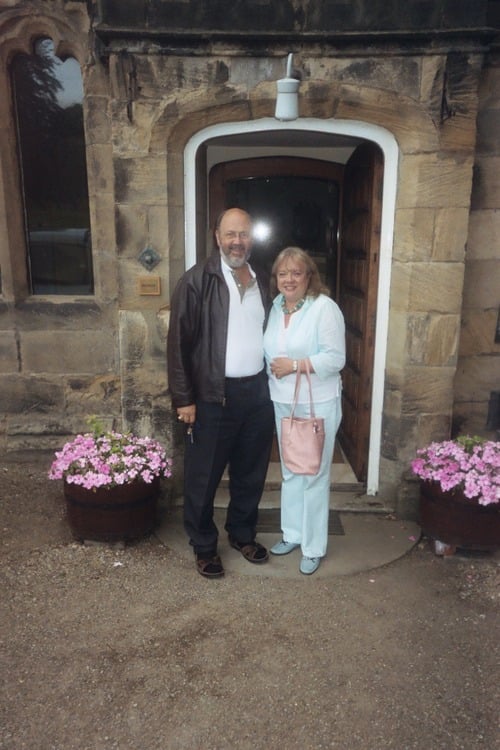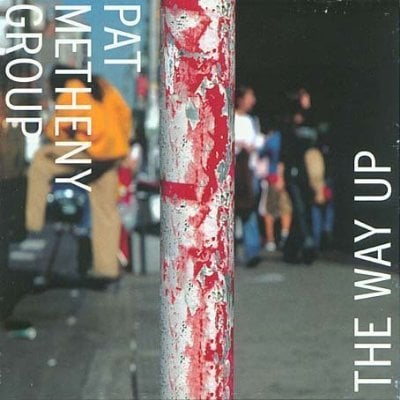Tom and Maggie Wright in front of Bishop Auckland Palace, the episcopal residence.
Bishop Tom Wright is not a shy retiring sort. I have watched him meticulously dissect and vivisect one of Dominic Crossan’s works in an SBL session. Reacting to the recent decision of the conclave of the Episcopal Church to reject the Anglican call for a moratorium on ordaining self-avowed practicing gays and lesbians, Bishop Wright argues that the Episcopal Church has now decided to go its own way on this matter, which signals it no longer really wants to faithfully participate in the covenant relationship known as the Anglican communion. You may read Wright’s reaction here to the decision
http://www.timesonline.co.uk/tol/comment/columnists/guest_contributors/article6710640.ece
I must say I entirely agree with Wright’s reasoning on this subject. Neither ordination nor marriage is a justice issue. They never have been. They are not inalienable rights of anyone. They are gifts and privileges granted by God. A few major points need to be stressed about what the Bible and basic common sense suggests about such matters:
1) The Bible, true enough, says nothing about sexual orientation. That is an entirely modern construct meant to explain something about human identity. But the Bible says plenty about sexual behavior. The issue here isn’t one’s inclinations, or desires, or wants. The issue is behavior. And what the Bible says is that same sex, sexual behavior, even between consenting adults, is a sin. This is the uniform witness of both the OT and NT, and no, Jesus is not an exception. Mt. 19.1-12 is clear enough in making evident that the followers of Jesus are given only two options— fidelity in monogamous (not polygamous) heterosexual marriage or celibacy in singleness. Jesus speaks of those not married, like himself, as being ‘eunuchs for the sake of the Kingdom’. The meaning of the word eunuch in Jesus’ world was perfectly clear. It meant a person who engaged in no sexual activity whatsoever.
2) I doubt we will ever settle or sort out the nature vs. nurture issue when it comes to sexual inclinations. But even if it could be shown that we are born with certain sexual inclinations, this would not settle the matter of whether they were good or not. Why not? Because the Christian tradition has always recognized that we are all born fallen human creatures, we are all born with inclinations to sin. So the cry “I was born this way, I am this way by nature’ doesn’t settle the issue at all as to whether God wants you to be that way.
3) Especially in a democracy like we have in America, it ought to be the case that the majority rules when it comes to public policy. This means, in regard to things like marriage that a small minority of U.S. citizens should not expect they have the right to redefine the meaning of the word ‘marriage’ for the majority. This is not an inalienable American right nor is it a justice issue. But of course as we all know, such policy may well be forced upon the majority by a small minority, if they are sufficiently well organized, well funded, have friends in high places, and the like. Ours is a participatory democracy and if the majority are not as exercised or as motivated as the minority, then indeed by default the minority opinion may well change the rules and laws the majority must also live by. We may not be happy with this fact, but it is a fact in a participatory democracy. The issue of civil unions is an entirely different matter and does not raise the same concerns as does gay marriage.
Marriage is by definition and always has been a theological construct, not a civil or secular one. This is perfectly clear when Jesus repeats the Genesis story and says that God leads the man and the woman together and joins them together, and even clearer when we talk about a marriage covenant. It is beyond disturbing that it is now possible in a country that values free speech, that there is actually a danger that anyone who criticizes the notion of gay marriage, even on strictly Christian and Biblical grounds, could in some places in America be charged with ‘hate speech’. This is an unacceptable political move to forestall meaningful discussion and dialogue about an important social issue in our culture, and frankly it is a gross violation of our right to free speech, a right we have so long as that speech is done in a respectful and open manner and is subject to correction.
Returning to the Tom Wright article, what is especially interesting to me is that Tom Wright is not, as a result of his remarks, now jumping on the ‘Anglican Church in America’ train and saying that Canterbury should connect with them. This is because he knows there are still many Episcopalian clergy and laity who do not at all agree with the recent decisions at the Episcopal meetings. And I must say, since I have close friends that are still Episcopalians, both clergy and laity, I entirely understand this move.
Stay tuned for more episodes in the continuing soap opera ‘As the Episcopalian Stomach Turns’. I am just thankful that the U.M. Church is still holding its clergy to the standard of fidelity in heterosexual marriage or celibacy in singleness, and if we have any sense, we will see what is happening in the larger Anglican Church on this issue as a cautionary tale that we should not want repeated in our own communion.
BW3


